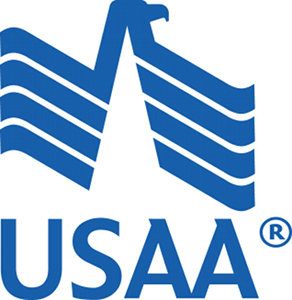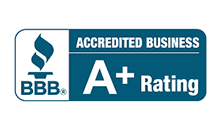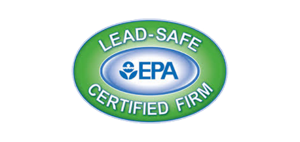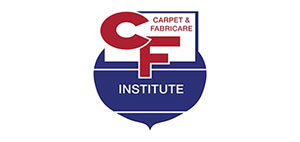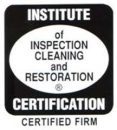Your home is likely your most valued asset, and protecting it from water damage is crucial in ensuring its longevity and maximizing safety. Water damage can be costly to repair and can cause significant structural damage to your home, as well as damage to your personal belongings. By implementing these water damage prevention tips, you can act now and stay secure in the knowledge that your home is safeguarded against potential water damage.
Key Takeaways
- Protecting your home from water damage is important to ensure its longevity and maximize safety.
- Water damage can be costly to repair and cause significant structural damage to your home and personal belongings.
- Implementing water damage prevention tips can help safeguard your home and provide peace of mind.
Identify and Fix Leaks Promptly
Water damage caused by leaks can be a nightmare for any homeowner. Leaks can go unnoticed for many months, causing significant water damage that is both expensive and time-consuming to repair. It’s essential to identify leaks early and fix them promptly to prevent water damage.
Regularly inspect your home for any signs of leaks. Look for water stains, musty odors, or dripping sounds. Any of these signs could be indicative of a leak somewhere in your home.
If you do identify a leak, it’s crucial to have it fixed promptly. Don’t wait until it gets worse and causes more water damage. Call a professional plumber or contractor to fix the leak as soon as possible.
Remember, identifying and fixing leaks promptly is an essential step in preventing costly water damage. Don’t wait until it’s too late to act.
| Signs of a leak | What to do |
|---|---|
| Water stains on walls or ceilings | Call a professional plumber or contractor to locate and fix the leak |
| Dripping sounds from pipes or faucets | Check the pipes and faucets for leaks and have them fixed |
| Musty odors in the home | Check for leaks in the plumbing system or in the roof |
By identifying and fixing leaks promptly, you can prevent water damage and protect your home. Act now to safeguard your most valued asset from potential water damage.
Maintain Proper Drainage for Water Damage Prevention
Proper drainage is essential in preventing water damage to your home. By maintaining adequate water flow, you can avoid water buildup around the foundation, which can cause significant damage. Here are some tips to help you maintain proper drainage:
- Clean Gutters and Downspouts: Make sure your gutters and downspouts are clear of debris to allow water to flow freely. Regularly inspect and clean them to prevent clogs. Clogged gutters can lead to water backups, causing damage to your roof and walls.
- Landscape Grading: Ensure that the landscape grading around your home slopes away from the foundation, preventing water from pooling near the walls. This will direct water away from your home and prevent basement flooding.
Regularly maintaining proper drainage is an easy and effective way to prevent water damage to your home. By implementing these tips, you can safeguard your home and maximize its longevity.
Install and Maintain Sump Pump and Backflow Valves
Water damage can cause significant harm to your home and its structure. Although there are preventive measures you can take, sometimes they are not enough. For this reason, it is recommended that you install a sump pump and backflow valves to provide an extra layer of water damage protection.
The installation process of a sump pump involves digging a hole in the basement floor to collect water, which is then pumped out of the home. A sump pump can help remove excess water and prevent flooding in your basement. If you don’t have one, you can hire a professional to install it for you.
It is important to note that a sump pump requires maintenance to keep it functioning correctly. Regularly inspect and clean the sump pump pit to prevent it from clogging with debris or dirt. Additionally, test the sump pump once a year to ensure it is in proper working condition.
Another water damage protection measure is installing backflow valves. Backflow valves protect your home from sewage or water flowing back into the plumbing system in case of a backup. They work by allowing water or sewage to flow in one direction, only out of the home. If you don’t have backflow valves, hire a professional to install them.
Like a sump pump, backflow valves require maintenance. Check the backflow valves regularly to ensure they are functioning correctly. If you notice any issues, have a professional fix them immediately.
By installing a sump pump and backflow valves, you can protect your home from water damage and potentially save you money on costly repairs. Remember to maintain these devices to ensure they are in proper working condition.
Conclusion
By following these water damage prevention tips, you can safeguard your home, maximize its longevity, and ensure the safety of your valued asset. Remember that it’s essential to act now and implement these measures to stay secure. Protecting your home from water damage is a proactive step that can save you from costly repairs and provide peace of mind.
FAQ
What are the top water damage prevention tips for my home?
Safeguarding your home from water damage is essential. Here are some top tips to maximize safety and longevity for your valued asset:
How do I identify and fix leaks promptly?
Identifying and fixing leaks promptly is crucial in preventing water damage. Regularly inspect your home for signs of leaks, such as water stains, musty odors, or dripping sounds. If you notice any leaks, have them repaired immediately to prevent further damage.
Why is proper drainage important for water damage prevention?
Maintaining proper drainage is crucial to prevent water damage. Ensure that your gutters and downspouts are clear of debris, allowing water to flow freely. Regularly inspect and clean them to prevent clogs. Additionally, make sure the landscape grading around your home slopes away from the foundation to prevent water from pooling near the walls.
Should I install a sump pump and backflow valves?
Installing a sump pump and backflow valves can provide additional water damage protection. A sump pump helps remove excess water from your basement, preventing flooding. Backflow valves prevent sewage or water from flowing back into your home’s plumbing system during backups. Regularly maintain and test these devices to ensure they are working properly.
How can following these prevention tips benefit my home?
By implementing these water damage prevention tips, you can safeguard your home, maximize its longevity, and ensure the safety of your valued asset. Acting proactively now can save you from costly repairs and provide peace of mind.







